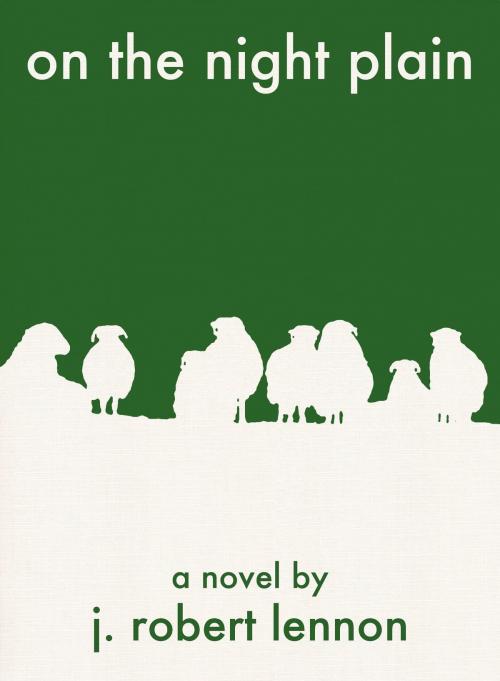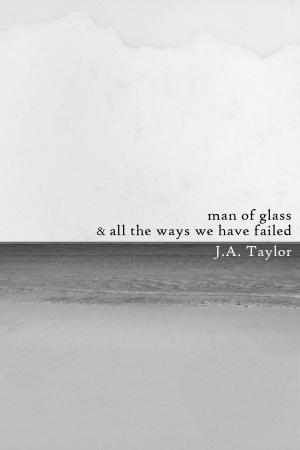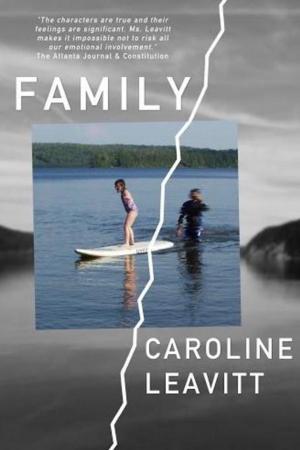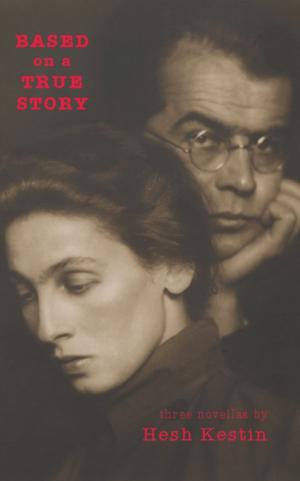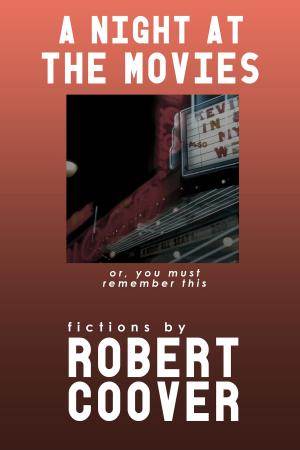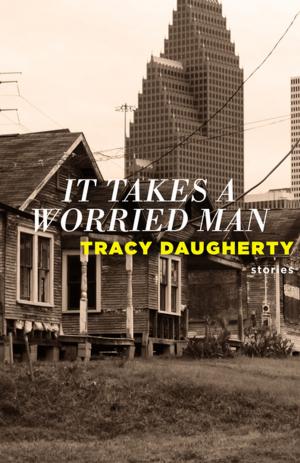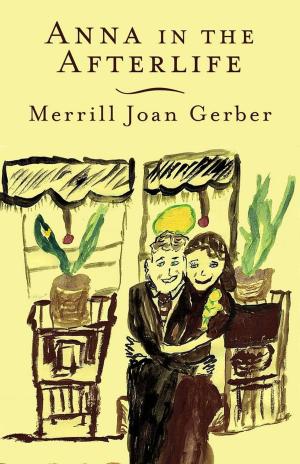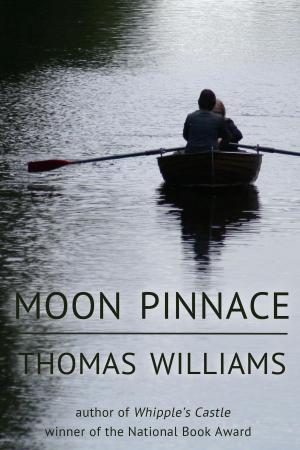| Author: | John Lennon | ISBN: | 9781941531686 |
| Publisher: | Dzanc Books | Publication: | April 14, 2015 |
| Imprint: | Dzanc Books | Language: | English |
| Author: | John Lennon |
| ISBN: | 9781941531686 |
| Publisher: | Dzanc Books |
| Publication: | April 14, 2015 |
| Imprint: | Dzanc Books |
| Language: | English |
On the Night Plain explores the complications of love and work; loyalty to family, the land, and one’s own desires; and the nature of solitude. This story about a man who reluctantly accepts his birthright in a hard-luck sheep-ranching family redefines the notion of a life worth living.
Hoping to make a new life for himself after WWII, Grant Person abandons his family’s ranch on the Great Plains for a fishing boat. But the death of his mother draws him back to the ranch left with a couple of hired hands, a sickly flock of sheep, and a pile of debt. Sofia, estranged from her father, struggles to find solace on the ranch, and instead finds herself drawn to Grant.
The ensuing contest of wills threatens to tear what is left of the Person family apart, and to revive ghosts that Grant had hoped were gone.
PRAISE
It’s clear from the first page of his quietly stunning third novel that Lennon doesn’t intend to write the same book twice. This is a major departure from both the well-received The Light of Falling Stars, about the after-effects of a plane crash, and The Funnies, a wry look at a dysfunctional family. After World War II ends, Grant Person leaves his family’s ranch on the Great Plains and heads for the East Coast. Behind him is the wreckage of a once-thriving family. Out of six brothers, only Grant and Max, his much younger brother, are left. Their mother’s death three years later propels Grant home, and he finds the ranch fallen on hard times: his father is gone, and Max is on his way out the door to pursue his art. When Max returns the following year, he brings his girlfriend, whose presence sets up a disastrous conflict between the two men. Brotherly love gone bad, solitude turning to a rancid loneliness, the workings of fate, and a guilty conscience: this is the stuff of Greek tragedy, and Lennon does a masterly job of showing us a man who realizes that he is destined to live a few scant miles from the heart of life, on its chill periphery.’ Highly recommended.”
-Nancy Pearl, Library Journal
Hoping to make a new life for himself after WWII, Grant Person abandons his family’s ranch on the Great Plains for a fishing boat. But the death of his mother draws him back to the ranch left with a couple of hired hands, a sickly flock of sheep, and a pile of debt. Sofia, estranged from her father, struggles to find solace on the ranch, and instead finds herself drawn to Grant.
The ensuing contest of wills threatens to tear what is left of the Person family apart, and to revive ghosts that Grant had hoped were gone.
PRAISE
It’s clear from the first page of his quietly stunning third novel that Lennon doesn’t intend to write the same book twice. This is a major departure from both the well-received The Light of Falling Stars, about the after-effects of a plane crash, and The Funnies, a wry look at a dysfunctional family. After World War II ends, Grant Person leaves his family’s ranch on the Great Plains and heads for the East Coast. Behind him is the wreckage of a once-thriving family. Out of six brothers, only Grant and Max, his much younger brother, are left. Their mother’s death three years later propels Grant home, and he finds the ranch fallen on hard times: his father is gone, and Max is on his way out the door to pursue his art. When Max returns the following year, he brings his girlfriend, whose presence sets up a disastrous conflict between the two men. Brotherly love gone bad, solitude turning to a rancid loneliness, the workings of fate, and a guilty conscience: this is the stuff of Greek tragedy, and Lennon does a masterly job of showing us a man who realizes that he is destined to live a few scant miles from the heart of life, on its chill periphery.’ Highly recommended.”
-Nancy Pearl, Library Journal
On the Night Plain explores the complications of love and work; loyalty to family, the land, and one’s own desires; and the nature of solitude. This story about a man who reluctantly accepts his birthright in a hard-luck sheep-ranching family redefines the notion of a life worth living.
Hoping to make a new life for himself after WWII, Grant Person abandons his family’s ranch on the Great Plains for a fishing boat. But the death of his mother draws him back to the ranch left with a couple of hired hands, a sickly flock of sheep, and a pile of debt. Sofia, estranged from her father, struggles to find solace on the ranch, and instead finds herself drawn to Grant.
The ensuing contest of wills threatens to tear what is left of the Person family apart, and to revive ghosts that Grant had hoped were gone.
PRAISE
It’s clear from the first page of his quietly stunning third novel that Lennon doesn’t intend to write the same book twice. This is a major departure from both the well-received The Light of Falling Stars, about the after-effects of a plane crash, and The Funnies, a wry look at a dysfunctional family. After World War II ends, Grant Person leaves his family’s ranch on the Great Plains and heads for the East Coast. Behind him is the wreckage of a once-thriving family. Out of six brothers, only Grant and Max, his much younger brother, are left. Their mother’s death three years later propels Grant home, and he finds the ranch fallen on hard times: his father is gone, and Max is on his way out the door to pursue his art. When Max returns the following year, he brings his girlfriend, whose presence sets up a disastrous conflict between the two men. Brotherly love gone bad, solitude turning to a rancid loneliness, the workings of fate, and a guilty conscience: this is the stuff of Greek tragedy, and Lennon does a masterly job of showing us a man who realizes that he is destined to live a few scant miles from the heart of life, on its chill periphery.’ Highly recommended.”
-Nancy Pearl, Library Journal
Hoping to make a new life for himself after WWII, Grant Person abandons his family’s ranch on the Great Plains for a fishing boat. But the death of his mother draws him back to the ranch left with a couple of hired hands, a sickly flock of sheep, and a pile of debt. Sofia, estranged from her father, struggles to find solace on the ranch, and instead finds herself drawn to Grant.
The ensuing contest of wills threatens to tear what is left of the Person family apart, and to revive ghosts that Grant had hoped were gone.
PRAISE
It’s clear from the first page of his quietly stunning third novel that Lennon doesn’t intend to write the same book twice. This is a major departure from both the well-received The Light of Falling Stars, about the after-effects of a plane crash, and The Funnies, a wry look at a dysfunctional family. After World War II ends, Grant Person leaves his family’s ranch on the Great Plains and heads for the East Coast. Behind him is the wreckage of a once-thriving family. Out of six brothers, only Grant and Max, his much younger brother, are left. Their mother’s death three years later propels Grant home, and he finds the ranch fallen on hard times: his father is gone, and Max is on his way out the door to pursue his art. When Max returns the following year, he brings his girlfriend, whose presence sets up a disastrous conflict between the two men. Brotherly love gone bad, solitude turning to a rancid loneliness, the workings of fate, and a guilty conscience: this is the stuff of Greek tragedy, and Lennon does a masterly job of showing us a man who realizes that he is destined to live a few scant miles from the heart of life, on its chill periphery.’ Highly recommended.”
-Nancy Pearl, Library Journal
